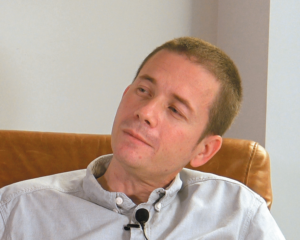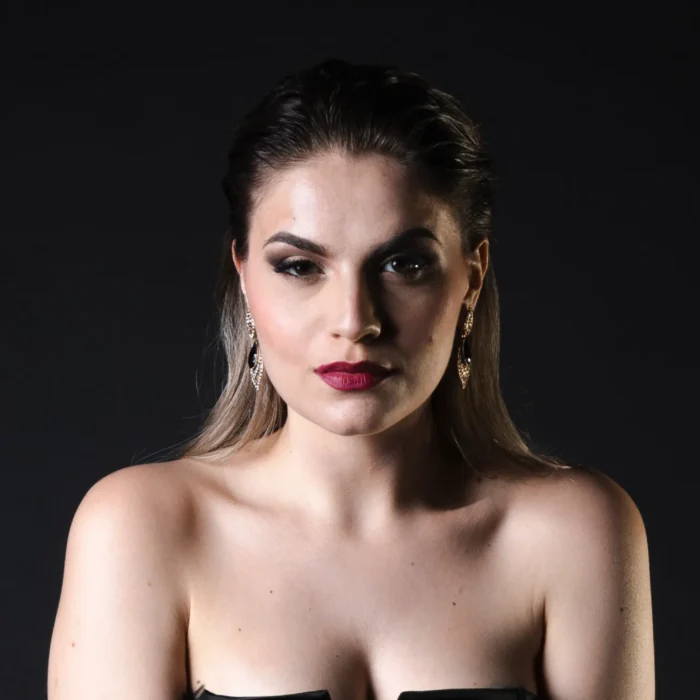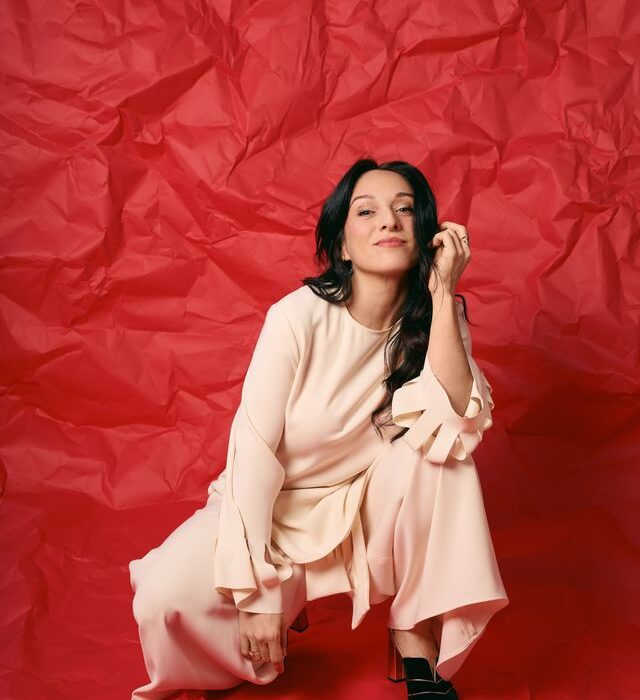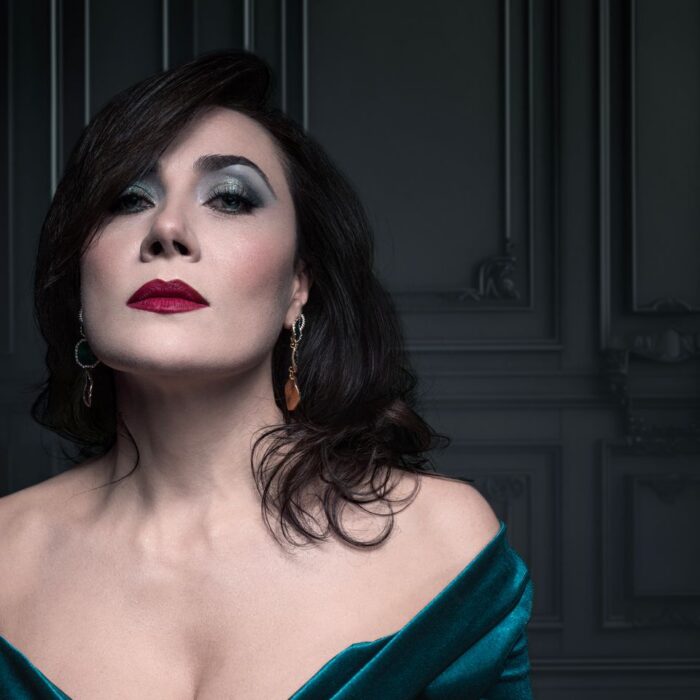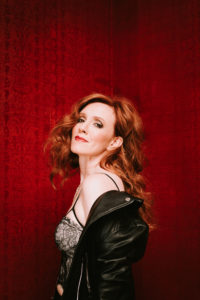
Q & A: Sara Jakubiak on Important Perspectives, Staying Busy & COVID-19
By Dejan Vukosavljevic(Credit: Ashley Plante)
When Berlin opera houses called off their performances in March due to the COVID 19 pandemic, one rarely performed opera was stopped dead in its track- the Komische Oper’s production of “Schwanda.”
Among the artists set to star in that production was American soprano Sara Jakubiak.
Jakubiak, who has appeared on the most important world stages, to include Deutsche Oper Berlin, Oper Frankfurt, Semperoper Dresden, Bayerische Staatsoper, Komische Oper Berlin, Palau de les Arts Valencia, Staatsoper Hamburg, English National Opera, and Theater Bonn, decided to go back to New York. She found herself in the eye of the storm.
“It was such a dark time, but I always had the outlet of the belief that better days will come,” Jakubiak told OperaWire.
The soprano, who started her climb to the top by performing in such operas as “Lohengrin,” “Die Meistersinger von Nürnberg,” “Ariadne auf Naxos,” “Die Tote Stadt,” “Eugene Onegin,” and “Der Freischütz,” recently spoke to OperaWire about important perspectives, the daily routines that keep her busy, and COVID-19.
OperaWire: Let me start this conversation by asking how are you.
Sara Jakubiak: I am doing very well. I’m in a good health, and also in good spirits. And you know, I’ve been keeping very busy. In difficult situations, you’re generally a fight or a flight person – and I am a fight person. I know it’s not the same story for everyone else. Lots of people are finding this situation difficult. I really feel for all of them, especially for the young artists that are just starting.
OW: What have you done during these challenging times to keep yourself positive and productive?
SJ: In the end, performing pays your bills, but it is a very small slice of the pie. In between, there is so much learning and just lots of hard work. I’ve never felt that I had to do something to keep myself positive. A positive day for me is a productive day. It is just lots of work. I kept working hard on my operatic repertoire. And I have learned a lot of the new recital repertoire as well – it is such a detailed work to do.
For me, this period brought lots of opportunities to really reacquaint myself with my own being and my artistry. With parts of me that were pushed aside. And I also dedicated lots of time to the German and Italian language learning. I took two German courses, and now I will take the third German course. Obviously, I’d like to get back to work, as everyone else.
OW: What do you think could be the greatest impact of the pandemic on your life and work?
SJ: I’d say that would be a perspective – perspective of the fragility of life, and the fragility of people. I have been also thinking a lot about the fragility of socio-economic systems. And I’d say definitely that it is the perspective of the fragility of health. There is so much death around us.
A year ago I lost my grandmother. She was 100 when she died. She had a great life. But let’s take things into perspective. Her life was bookended by the two pandemics. She was born in the year when the Spanish flu pandemic was wreaking havoc across the world. She died one year before this big COVID-19 pandemic. When I spoke to her the last time, she was still smiling and told me that I had a great life. The perspective for me comes with her life. It is the perspective that I will bring to my art once this is over.
We have also lost lots of instrumentalists and artists that have lived through WWII. There is actually great art that can come out of pain. The pain of this pandemic can blossom into something very powerful and very beautiful. When we’re finally ready to go back to the stage, we could see some really beautiful art that nobody has seen for a long time. That impact could be huge.
From my personal perspective, it is all about savoring the day. Because you never know when it will be taken away from you. I feel the new fire inside me to just go out and do what I really want to do with my life.
OW: Which are your daily sanctuaries?
SJ: First, I’d say it is work. I just love to work. I have not taken a day off since March. I was working hard on my music and my technique.
And there comes my cat, one lovable boy called Bandit. He was living on the streets of Manhattan for about eight months. A shelter took him in, and I adopted him. He is a break from the norm. He is very creative and very talkative. He has all kinds of things to tell me every day. The beginning with him was very interesting – for example, he did not know how to be picked up. He just always wanted food, he was really very skinny. Now, he is thrilled that I’m at home all the time.
And for me, the sanctuary of life is all about living in the moment. Then, I’m opened to different kinds of things and ideas. I am just taking things as they come.
Having some nature and sunshine in my life during this pandemic has also been very important for me. In that way, I did not feel that I was stuck inside the four walls. I did some Zoom calls with my friends so to keep up with what they were doing.
OW: You had a very busy schedule going into the pandemic. First, you had the production of “Elektra” in Valencia, then “Die Meistersinger von Nürnberg” at the Semperoper. What were your impressions coming from these performances? Did you sense the incoming danger?
SJ: During the run of “Elektra” in Valencia I got sick and I had to be treated in the hospital. It was nothing COVID-19 related, I had another virus and I just had to receive some IV treatment. Other people were coming to the ER, and we had only curtains to separate us. Two ladies and one gentleman came there at different times. Neither was able to breathe well, and they were hooked up to oxygen. Now, thinking about it, I believe that these were some possible first signs that I saw about this pandemic coming.
Approximately at the same time, my Mom also told me that she had two sisters that ended up in the hospital because of the coughing and breathing difficulties. In retrospect, this was all very strange. I had a feeling that something was going to happen, and I did not know what that was.
Regarding the performance itself, Iréne Theorin is like a hurricane— and I needed her energy to play off of to be the Chrysothemis I wanted to be. And Doris Soffel is a class act and super funny.
In Dresden I jumped in for the final performance of “Die Meistersinger von Nürnberg,” and everything seemed so normal. I did not feel or see any signs of something unusual happening. Working with Maestro Thielemann was really a memorable experience for me.
OW: The beginning of the pandemic found you in Berlin, where you rehearsed for the role of Dorota in Weinberger’s rarely performed opera “Schwanda” at the Komische Oper Berlin. Then you were slated to sing “The Last Four Songs” with the Munich Philharmonic before it all stopped. How did you deal with the situation?
SJ: I was obviously very disappointed. With “Schwanda” we were so close, the premiere was scheduled for March 29. We’ve all put so much work into it. We were told about the cancellation during one of the rehearsals.
I decided to just go to my apartment in Berlin and self-isolate for a period of two weeks. I was surrounded by lots of people during the rehearsals, and I thought that it would be the best and the most responsible way to act. I really did not know much about the COVID-19, so I just decided to be a good person and quarantine.
And then I simply waited to see what would happen with my performance with the Munich Philharmonic. I made other plans because I still hoped that I would go to London and sing with the London Philharmonic afterward. I really held onto it, as a professional. And when the London cancellation was announced, I went to New York.
It was the strangest flying experience I’ve ever had, as there was literally nobody on the plane. I was even shocked that it was flying. The scariest parts were in the airports while waiting in the lines. There I had close contact with people. But I had a face mask at all times, and I did my best to protect myself. I’ve been wearing masks in airplanes for about eight years, so it was not a new experience for me. In the past I was always getting strange looks from the people, but not now. I really think that face masks in airplanes should become a permanent thing.
OW: When you returned to New York you found yourself in the eye of the storm. How did you face that dark environment?
SJ: Going back, I understand that the citizens of New York are fighters, and generally very resilient. There are eight million people living in Manhattan. It was such a dark time, but I always had the outlet of the belief that better days will come. I’ve always stayed true to my schedule and what I do in my life. I am often by myself, I am often alone preparing things. The pandemic just gave me more time for reflection and perspective. There is a beauty to that process. And that gets me through.
Right now, New York is doing extremely well compared to the rest of the country. We’ve had such good leadership from Governor Andrew Cuomo. People were following the rules. Everyone was wearing masks, and I saw people wearing gloves if they went to the supermarket to get food.
We have lost so many people due to the COVID-19, and we haven’t been able to properly mourn them. We should commemorate them when we sing together in the future.
I really think that New York will come back to its glory once this is over. I knew that I was in the eye of the storm, but I also knew WHO I was with in the eye of the storm. I’m really impressed with the resilience of this city and its citizens.
OW: Being a freelancer, you lost some work in the last five months. What do you think about the general cultural landscape in Europe, as well as the United States?
SJ: I have a residency in Germany, and my fiscal home is Germany. The vast amount of my work has been in Europe, so I really can not speak that well about the situation in the United States. I don’t know so many details about the unemployment schemes, but I know that people are really struggling here. Many don’t have anywhere to turn for help. That is really very sad.
On the other hand, my profession is all about hard work and opportunity. If you don’t have the opportunity, you don’t really go anywhere. Germany is so full of opportunities. There are so many opera houses in Germany, and productions are fascinating. That is simply incredible. I’ve been a lucky person to work with some of the conductors that I have. I got a very detailed education during those fruitful collaborations.
I really love the cultural landscape of Europe. Europe does not want to give up its operas, and classical music. The United States is a melting pot of many cultures and kinds of performing arts. It would be impossible for the government to fund all of them.
Thus, many things that work in Germany and the rest of Europe, don’t really work that well in the United States. The United States is just a very big country.
OW: Regarding your upcoming projects, your performances in “Tannhäuser” at the LA Opera have been postponed until 2021. You are slated to sing the title role in “Francesca da Rimini” at the Deutsche Oper Berlin in December this year. What excites you about taking on these projects?
SJ: Regarding my incoming “Francesca da Rimini,” I have learned the role. And now really I have lots of time to learn all sorts of things. Artistically, Francesca seems like an interesting cross between Korngold and Puccini. I am very excited to perform Francesca. I think that she is mysterious, and she also has lots of darkness around her. She believes in the validity of love, and she feels the pressure from her family. She reminds me a lot of Heliane. Like Heliane, Francesca sees the light in the darkness, and that is precisely what I like about her.
OW: What do you expect to become the “new normal” post-pandemic, especially regarding your job?
SJ: It is very much about following the rules in order to stay healthy and being able to perform. But I am optimistic about the future. I expect full auditoriums, and people sitting side by side. I also fully expect that we will be able to perform as we did before the pandemic. Levels of artistic expectations remain quite the same for me.
An effective vaccine should get us back to the old normal, but with the new awareness about life.
OW: What gets you up in the morning?
SJ: Quite literally, Bandit, my Bombay kitten. He has a really good voice, better than mine. But on a serious note, the life that I have created for myself, my family, and my friends get me up in the morning. And also the hope to be able to sing again for the audiences. There are things that we have to do to get there, but I believe that we will ultimately do it.
